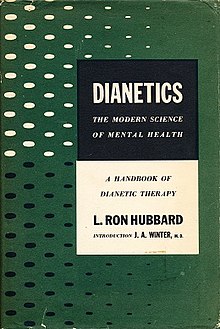The Definitive Guide to Dianetics
The Definitive Guide to Dianetics
Blog Article
The Buzz on Dianetics
Table of ContentsDianetics Fundamentals ExplainedThe 4-Minute Rule for DianeticsUnknown Facts About DianeticsGetting The Dianetics To Work
I could not ever before not intend to obtain anything that comes to mind for you- if it was or else, I would not be sitting right here with you, doing this. I not only can never ever have an issue, or not wish to listen to something that enters your mind for you, yet I'm entirely anxious to understand every concept, every thought, every image or feeling that arises or shows up for you- do not ever before believe or else, and if somehow you do, please just let me understand! Sometimes, you may have a thought, and photo, idea or event turn up that does not appear to answer the question, or associate with it, yet however, always do inform me concerning it, and as we continue, the importance will arise for you.This is intrinsic in the basis of handling, and the subject of this conversation: the basic duties of the counselor and the customer: The basic duty of the counselor is, as opposed to "common training", not to control, which suggests to impose and/or hinder, but to rather function from the basis of EMPOWERING THE CLIENT.

Facts About Dianetics Uncovered
John Mcmasters shared this fundamental fact wonderfully well in among his talks on Power processing, where he clarifies how he was asked what this "unique flair" was that he had for providing such fantastic sessions; he needed to think of that for a minute, and found that it was what he had not been doing, as well as what he was doing: he had not been evaluating, judging, computer, or actually, producing any kind of ideas, not to mention verbal expressions, after providing the command and while awaiting the computer to finish their response to their contentment; he was, merely and only, being present with the computer, and entirely interested.
The role of the counselor, showed; that was his "special knack". I have actually had my very own experience which taught me this well, very at an early stage in the game. In 1982, having actually lately finished my training and internship on New Era Dianetics, I was running this on a PC, and there was a point in the session where (being a bit damp behind the ears not yet having numerous hours under my belt as a specialist auditor) the computer appeared to be "taking as well lengthy" to express anything vocally after I offered him a command.
This trick became the most important contribution that John ever made to the More Help topic of treatment or auditing (Dianetics). In my simple point of view, it is the greatest contribution that anyone has ever made to these subjectsthe application is completely non-judgemental, non-evaluative, and lacking any type of pointer, suggestions or opinion.no preconditioned agenda for individuals, or 'degrees' that they must do
In Idenics, the only resource of info about a customer is the private client. In Scientology we prided ourselves on not evaluating for individuals. All that really suggested was that the auditor did not Vocally assess for the PC in session. The registrars and values policemans assessed for the computer.
Facts About Dianetics Revealed

Anyone that had actually ever before seen John audit could not aid but observe a distinct top quality in his auditing."The client's fundamental role is to be there with the function of relocating the direction of their spiritual goals, and to openly and fully reveal and experience whatever shows up for them in answering the inquiries and executing the directions in see the handling.
This is something to process as needed. Yet also, people regularly have previous experience and/or indoctrination in auditing/processing which, in some methods, and to some extent, actually misinforms them into mindsets, concepts and behavior patterns that protect against the full awareness of these functions, and so they will often tend to inhibit the expressing of what enters your mind, as in the examples provided above. * The initial, and maybe leading examples of mis-indoctrination resulting in less than totally smooth and reliable sessions, can be located in certain facets of the training routines, or "TR's":"TR's" are frequently a person's first, or at the very least early, experience in Scientology, and while I will certainly go on to discuss what I view as the flaws in principle and practice, however, often tend to be significantly restorative, done as they are given (Hubbard insists that "TR's are not processing, they are training", however factually, they are both processing AND training)
There is no "flunking", and no rejection of the fact of this being handling. anchor The focus, as it needs to be, is on experiencing the other individual's existence.
7 Simple Techniques For Dianetics

Report this page